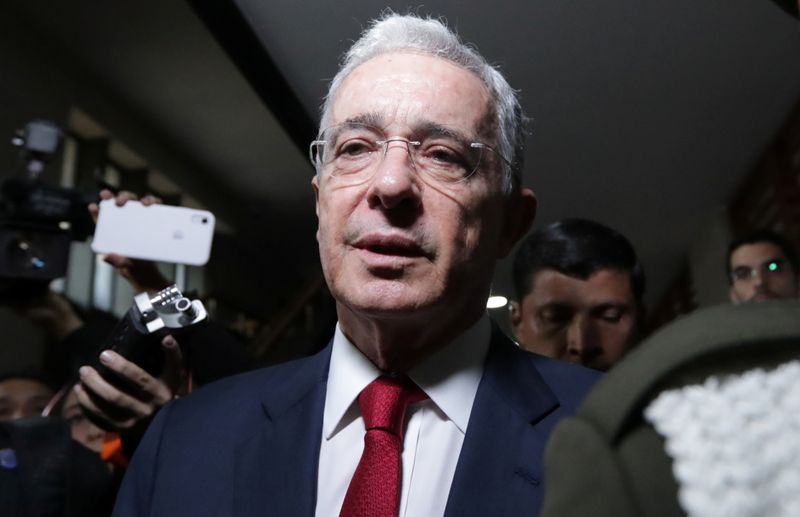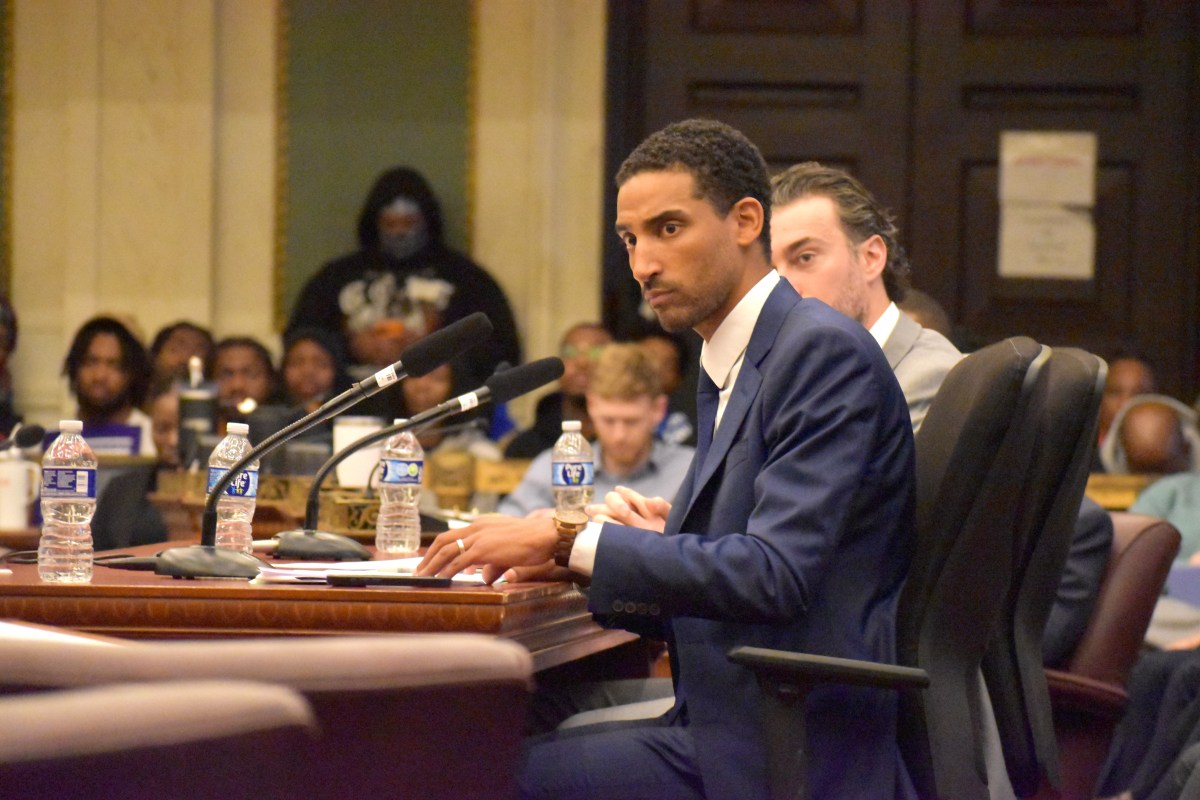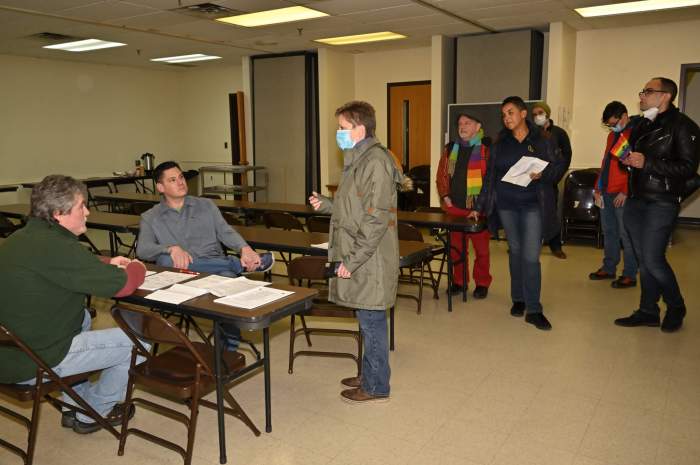BOGOTA (Reuters) – Former Colombian President Alvaro Uribe, who is under investigation for alleged witness tampering, resigned his Senate seat on Tuesday after being placed under house arrest earlier this month.
The Supreme Court placed Uribe, perhaps the South American country’s most divisive politician, under detention in a unanimous decision that cited potential for obstruction of justice. He has said he is innocent.
In a resignation letter to the Senate president posted on Twitter, Uribe listed a variety of reasons that he said had prompted him to “annul any expectation that I can return to the Senate.”
Along with his house arrest, Uribe said eight procedural guarantees had been violated and that wiretaps which form part of the case were illegal. He also said his “political and journalistic adversaries” had received selective leaks of case documents.
The whole of a more than 1,500-page court document regarding the house arrest ruling became public a few days after the decision.
In his letter, Uribe expressed his support for a judicial reform proposed by his Democratic Center party that has gained steam amid his court case.
“I vote for a justice reform that de-politicizes by changing the system of electing magistrates,” the letter said. “The fight to defend the freedom of Colombia is an unrenounceable imperative.”
Uribe’s seat is expected to be taken up by whichever remaining candidate on his party’s list from the 2018 elections got the highest number of votes.
The former president and several allies stand accused of engaging in witness tampering in an attempt to discredit allegations Uribe had ties to right-wing paramilitaries.
It is the first time ever a Colombian court has detained a former president.
Considered a kingmaker, Uribe has shepherded two successors to power since the end of his second term in 2010, including current President Ivan Duque, who has repeatedly said he believes his mentor is innocent.
(Reporting by Julia Symmes Cobb; Editing by Will Dunham and Tom Brown)




















